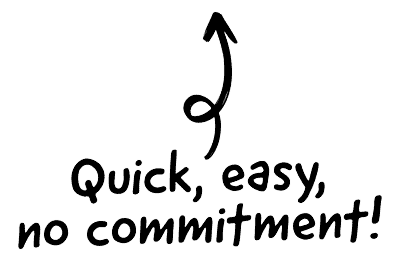Creativity is a relative subject. Some perceive creativity as an art that can be trained and some think of it as an innate talent. Creativity is associated with many such myths that make people form different opinions of this subject.

But what defines “creativity” in its true sense?
Creativity is anything that stimulates thinking and gives new directions to our thoughts. Keeping into the essence of its definition, any person can be creative in his own way. So, we can say that there is nothing called “born talent” or “innate creativity” in the real world.
 Cutting edge payroll software
Cutting edge payroll software
- Powerful and easy to use
- HMRC & RTI compliant
- Used by payroll pros
 The CRM platform to grow your business
The CRM platform to grow your business
- Great for entrepreneurs
- Powerful data analytics
- Manage sales and data
 Powerful web builder and advanced business tools
Powerful web builder and advanced business tools
- Great for startups
- Powerful web page builder
- E-commerce available
 Supercharged content planning
Supercharged content planning
- Great for marketing
- Better than lists or sheets
- Manage social media
 Create a new website in 10 minutes. Easy.
Create a new website in 10 minutes. Easy.
- Launch your website fast
- Powerful data intuitive
- No coding skills needed
Presenting here are 9 of the myths people should stop believing.
-
Creativity belongs to creative breed
Creativity has nothing to do with blood lineage or ancestry. In fact, it involves training of your mind to form ideas which is commonly known as “art of thinking”. No one is a born artist and innate talent. If it were true, it would not have taken J K Rowling and Samuel Jackson to slog a big part of their life to prove their talent. Creativity is an outcome of continued mental training to get the flow of ideas.
-
An original idea
Every idea that comes to our mind is an outcome of threads of thoughts that it derived from. It is after our intellect processes those threads of thoughts that an ideas develops into its actionable form. In other words, there is nothing like an “original idea”.
-
Inspiration creates creativity
Creativity is not restrained to a Eureka moment. An idea has to pass through the different areas of our mind before it hits our imagination. It is a process that takes days, months and even years before you finally snap your fingers and say, “Hurray! I got an idea.” Inspiration is just a catalyst in this process that connects the lines of thoughts.
-
The concept of creative genius
No one is creative genius. An artwork is created only when few individuals do their bit to achieve a vision. A song is created only when lyricist, composer and vocalist lend their skills. Similarly, a film is conceived when the creative team does all the ground work. You cannot credit a single person for a final creative work.
-
Brainstorming is essential for creativity
Group discussions are productive for generating ideas but they do not always work for everyone. An extrovert will find no inhibitions to share their thoughts in a group, while an introvert feel not find it comfortable to express his ideas in front of people. In an organization which comprises a mix team of introverts and extroverts, brainstorming has little or no role to play. Remember that creativity works best for different people in different settings.
-
Creativity strikes spontaneously
Contrary to this popular myth, creativity is more effective when you plan things. The most famous inventions are a result of a long research work. From the conception of first computer to the invention of iPhone, the most innovative inventions are a result of years of research and analysis. It is after days of research work that such innovative inventions were created and not by a moment of muse.
-
Limitations hinder creativity
Limitations foster necessity and we know very well that necessity is the mother of invention. Necessity encourages our mind to seek creative ways to find solution of a problem. Had we were not restricted by geographical boundaries, would the world have seen inventions like airplane and ships? Were we not constrained by information, would we have internet at our fingertips? Humans have a tendency to pursue creativity to overcome their limitations.
-
Creativity Is when you finish an invention
Creativity is a gradual process that involves perception, incubation, illumination and application. So, if you successful achieve any of the stages, you are creative in a way. This is why the most innovative inventions of the world are credited with more than one people.
Edward Roberts is credited with invention of modern computer but its concept was proposed by Charles Babbage. Similarly, the first hand-held phone was conceived by Motorola but its technical groundwork was presented by Hedy Lamarr. Each of the people involved in these inventions are creative in their own way. Morale of the story: “you are not creative only when you complete an invention.”
-
Creativity means invention
It is not necessary to invent something to be called creative. Creativity is all about sensing a need and making contribution to overcome it. Steve Jobs is credited with bringing radical changes in modern computing even when he is not the inventor of computer. He is known to have invented some of the pioneering concepts in computing with iMac and iPhone.
Hope the above-mentioned 9 facts demystified the myths of creativity and provided you with new perspectives to imagination.


